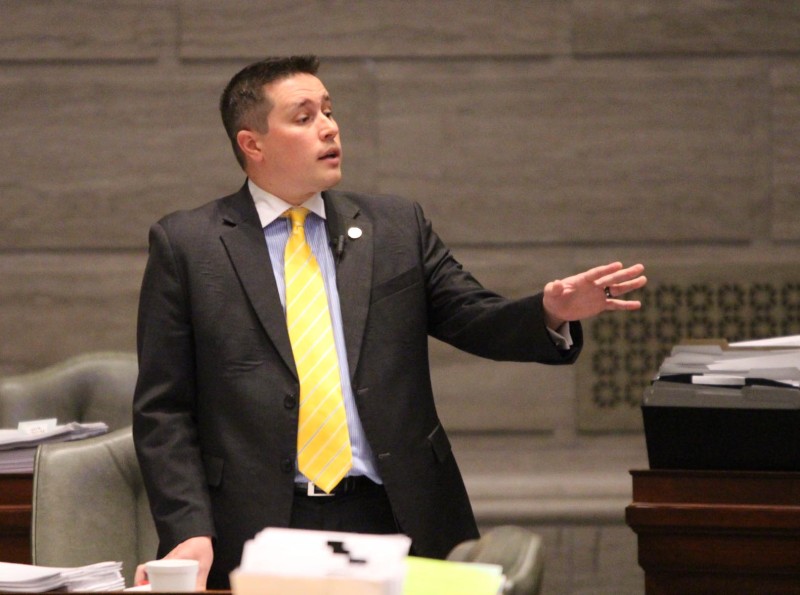JEFFERSON CITY, Mo. — A bill that would revise a lot of the state’s energy policies and change ratemaking laws stalled in the Senate due to two Republicans who fear it would increase rates on small businesses and residential consumers.
Sen. Ryan Silvey had hoped to reach a vote on the bill Tuesday evening, but the filibuster forced him to temporarily withdraw the bill and place it on the informal calendar.
Sen. Rob Schaaf and Gary Romine took hold of the floor with the intent to kill HB 2689, authored by Rep. Rocky Miller. Miller’s bill would do a multitude of things, but primarily it would institute the Net Metering and Easy Connection Act, which ups the wattage allowed on customer-generators from 100 kW to 300 kW and requires net metering be made available until such generating capacity equals 7 percent of electrical corporation’s single-hour peak load as opposed to five percent.
The bill also establishes the 21st Century Grid Modernization and Security Act, and has a provision to assist Noranda, by allowing aluminum smelters to work with their electricity suppliers to determine a specific rate for smelters.
The controversial part of the bill would allow an electrical corporation, such as Ameren to submit a rate tariff regardless of whether or not the Public Service Commission (PSC) made any rules about those rate tariffs. Essentially, they believe it would allow electric utilities to set their own rates.
Romine believes that means small businesses and residential consumers will bear the brunt of those rate increases.
“The problem is that because of all our energy saving devices, consumption is going down,” Romine said. “That’s good, conservation is what we’ve all been talking about, but their stockholders, we’ve got to bring these big bucks, so we have to raise rates that we have control over…
“Who’s going to pay for that? That’s going to be us the average consumers, that’s going to be small businesses that make up the difference.”
Silvey calls that analysis of the bill “silly.”
“We’re getting rid of regulatory lag by saying it’s not going to be a three-year process anymore with rate cases every 18 months, but the trade off is we’re going to cap these rates,” he said. “Their ability to increase rates is greatly restricted under this versus what we have today.”
Silvey noted that Kansas City Power & Light is currently asking for a nine percent rate increase and that his bill would reduce that to a two percent rate increase that could drop to no increase at all in the first year of the bill.
Schaaf posited that the regulated monopoly of companies with such control should be well-regulated and called for a stronger PSC.
“I’m tired of being a tool for these big companies… coming to us, asking us to do all this stuff that is going to jack up the rates on electricity,” he said.
The St. Joseph senator said he had put the movie “Kill Bill” on his office television to get into the filibustering spirit. Before the two took the floor, Silvey was nonplussed in the face of the opposition.
“I think everyone can find something they don’t like, and usually that’s the mark of a good bill,” he said.
The filibuster began when Silvey offered an amendment designed to cap rates for fixed-income, low-income seniors. So, Silvey called the amendment back, just to retake the floor after an hour of the filibuster and derided Romine and Schaaf for filibustering helping seniors.
I’m disappointed that some of my colleagues are filibustering a cap on the electric rates of fixed income senior citizens. Sad. #moleg
— Ryan Silvey (@RyanSilvey) May 3, 2016
“The amendment that’s on the floor pending right now would cap senior citizen rate increases at the same cost of living adjustment for social security,” he said. “If you’re a fixed income senior living on social security, this would ensure that your electric rates don’t go up faster than social security. We don’t have anything like that today, and I really wish we would talk about that a little bit.”
Then, Silvey submitted the exact same amendment.
An hour later, Silvey ended debate on the bill for the night.







